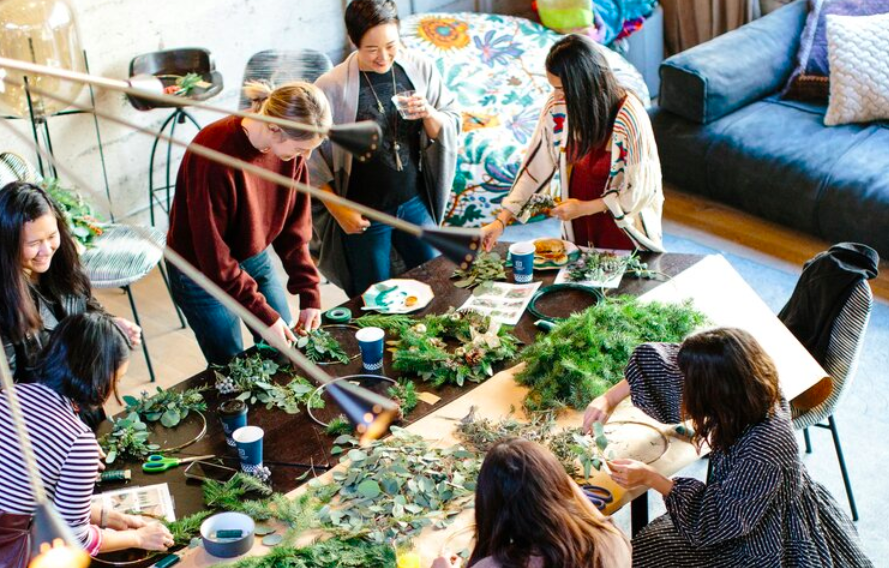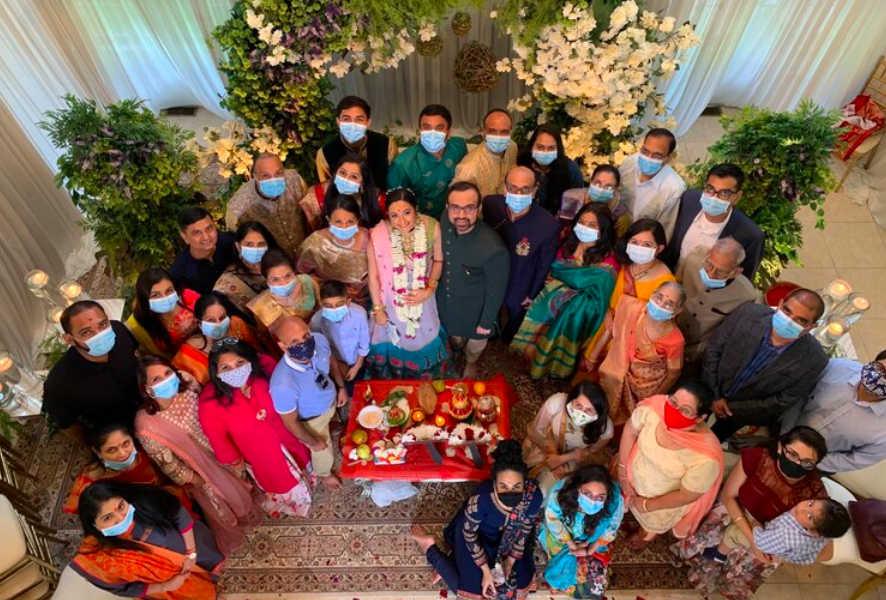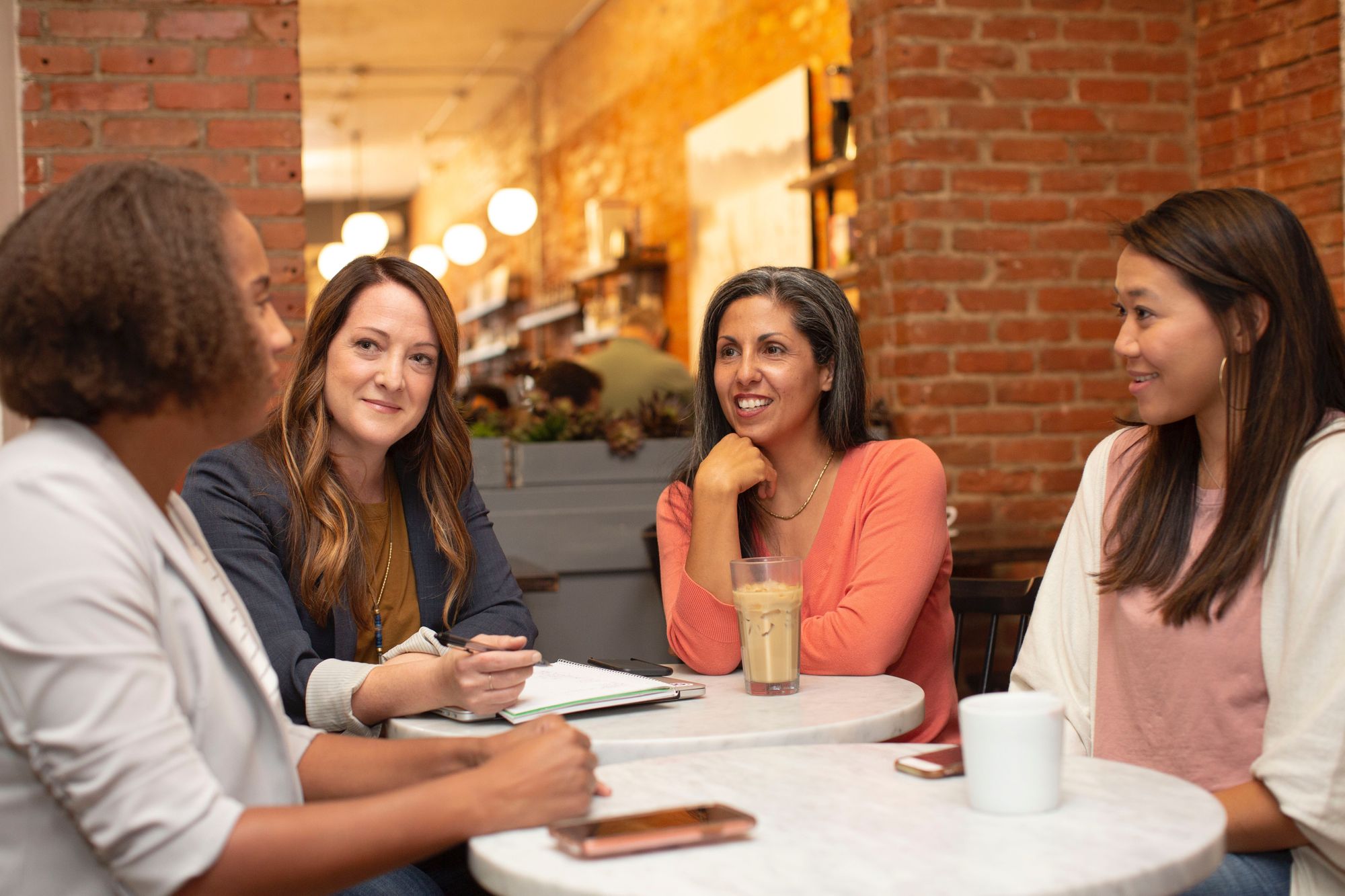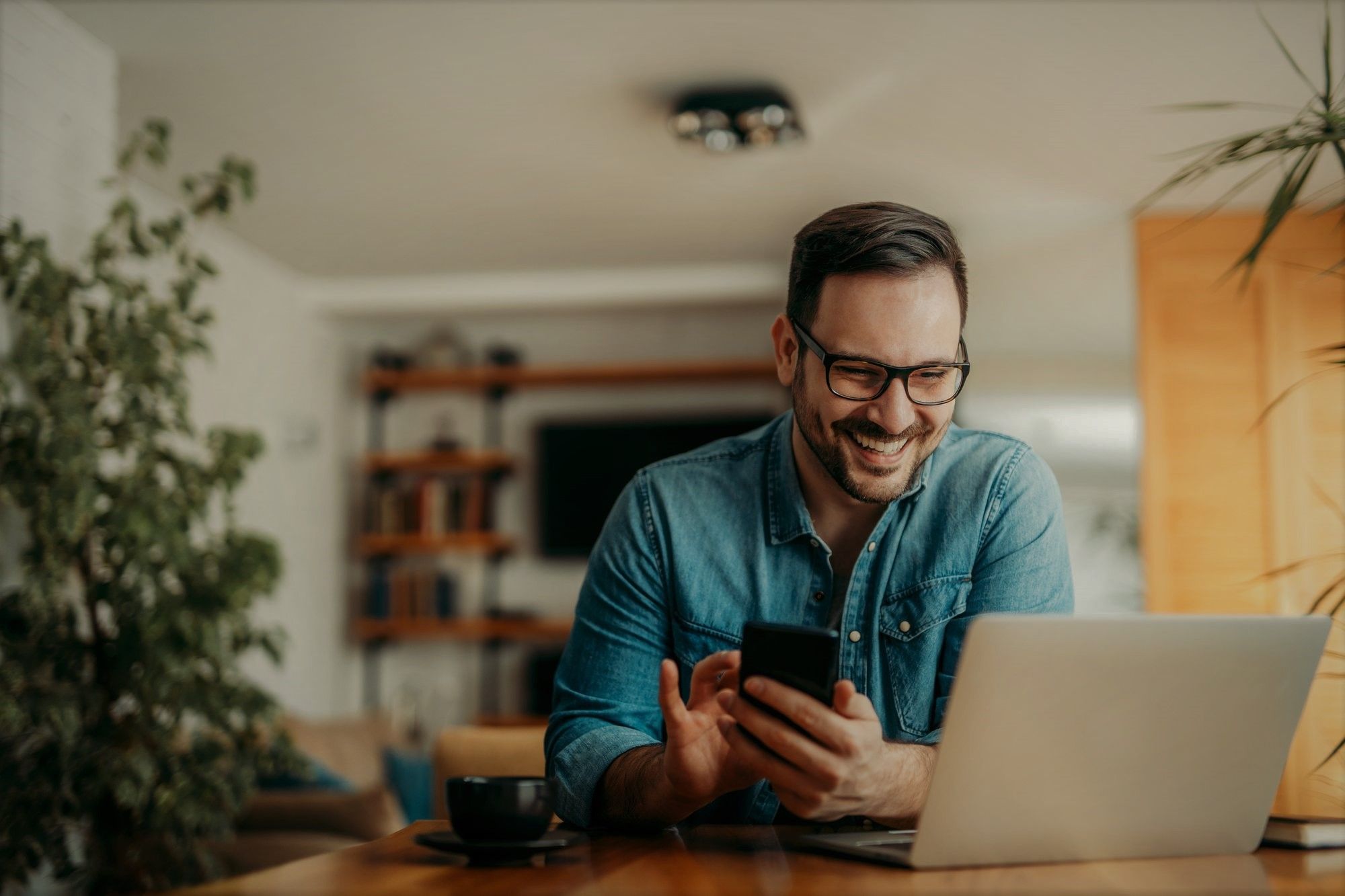On Wednesday 28th October, the Hire Space Virtual Team kicked off Part 1 of EventLAB 2020 Online. This year marked the first time this event was held virtually and focused on Sustainability, Workplace Culture & Leadership. We welcomed some incredible speakers from across the industry to share their expert knowledge and advice across a range of discussions.
As part of the event, co-founders of Diversity Ally, Ashanti Bentil-Dhue and Gabrielle Austen-Browne, held a workshop on ‘Ways to Create More Inclusive Environments, at Work and for Your Events.’ Watch the highlights below and read on for the key takeaways.
Key Takeaways
Becoming consciously inclusive
Gabrielle explains that ‘conscious inclusion’ is having the desire, insight and capacity to make decisions, do business and think and act with conscious intent to include everybody. This requires us all to have an awareness, understanding and appreciation of different diversity groups. In fact, becoming more self-aware comes with a whole host of benefits, including enabling us to better connect with our teams, colleagues and leaders.
According to Gabrielle, the main thing that stops us from being consciously inclusive is the unconscious biases that we have. It’s an unfortunate side-effect of human nature that we pick up biases from the environments we’re in - whether that’s our childhood and upbringing or our friends and family.
While these biases are natural, they can give us negative assumptions. Gabrielle shared an example of a gentleman who was attending a networking event as one of just two persons of colour. He was pulled aside and asked where to get more coffee from, as another attendee assumed that he was working at the event rather than attending as a guest.
This is just one example of assumptions that can stop us from making inclusive decisions or including others in our decision-making. The first step to becoming more culturally inclusive is becoming aware of and addressing these biases.
Steering your company culture
Gabrielle went on to discuss what differentiates a good company culture from a bad one. A good company culture makes every individual aware of their importance individually, within a team and within the overall business. On the other hand, a bad company culture will often create cliques, encourage poor work ethic and result in employees who just ‘switch off’ and eventually leave.
So, how can we improve our company culture?
Gabrielle points out that it’s important to understand the role that we each have as individuals in improving company culture. One key way of positively influencing it is by becoming aware of our own individual biases. Another is learning how to include everybody and allowing them to share their ideas.
To help spark change, Gabrielle suggests asking your company what they’re already doing to improve diversity and inclusion in the workspace, and sharing any further ideas you have on how it could be improved. It’s also important that when we plan internal events, such as team building days and off-sites, we think about how we can cater for different cultural and accessible needs. One way to make sure we’re doing this well is to include the people it affects in the planning of these events.

Becoming more culturally and diversity aware
Ashanti points out that thinking about diversity and inclusion at a time like this may not be the most intuitive or instinctive thing to do. Conscious inclusion isn’t always easy when we’re under pressure and people may be expecting more from us than what our job role required pre-COVID.
However, becoming more culturally and diversity aware doesn’t have to be a big, complicated exercise. Whether you’re planning an internal or external event, diversity simply means being aware of the differences that may exist for some of your guests, and making an effort to include them.
According to Ashanti, often these differences will be about things like race, age and sexuality. But sometimes, they can also be as simple as being aware of somebody’s dietary requirements. After all, if somebody can’t eat anything for the duration of your event because there’s nothing that’s safe for them, they’re not going to have a great experience.
Creating inclusivity at events
Ashanti believes that if you’re involved in the planning of an event, you should encourage learning - whether this is about different customs, preferences or experiences.
For example, if you’re part of a venue team, you may see different cultural groups coming in to use your venue for milestones such as weddings and births. Understanding their traditions and being able to have a conversation about them will allow you to provide them with a great experience and may even result in them rebooking your venue or recommending it to other groups within their community.
It’s also important to make sure that your marketing materials reflect at least a few different cultures and groups, both in the language you use and in the imagery. An image may seem like a small thing, but it will give off subtle, subliminal messages that will tell people whether or not they’re going to be welcomed.
Finally, Ashanti recommends seeking out diverse suppliers, so that you’re not on a solo journey. By working with a diverse team of people, you’ll be better able to see your event through a wider lens.

Cultural sensitivity
Ashanti points out that becoming more sensitive to other people’s cultures, even if we don’t fully understand them, can help to give your business a competitive edge. Not only will it enable you to stand out, but it will expand your customer base, which can in turn increase engagement, bookings and ticket sales.
By partnering with experts in different spaces, such as marketing agencies who specialise in marketing to specific groups, your business will be better able to understand what messaging is appropriate to use, helping you to connect with a wider audience. Getting this messaging wrong can not only lose you money, but it can also harm your brand reputation.
About The Speakers
Ashanti Bentil-Dhue, Co-Founder, Diversity Ally
Co-Founder of Diversity Ally, Ashanti Bentil-Dhue is an experienced events entrepreneur, diversity expert, researcher and speaker. She heads up the team at EventMind, a virtual event production company based in London, UK. She’s also a co-founder of the global network, Black In Events. She spearheaded the only research in the UK exclusively focused on how organisations can invest in black millennial and generation Z women within the corporate structure. In June 2020, she co created the UK's first nationwide anti-racism and allyship project for white women who want to be allies.

Gabrielle Austen-Browne, Co-Founder, Diversity Ally
Co-Founder of Diversity Ally, Gabrielle has been active in the D&I space for over 13 years. She went on to volunteer at the Chickenshed Theatre Co. where she completed their diversity and inclusion training, going on to win the Jack Petchy leadership award. Wanting to dive deeper into inclusive dance, she completed a Masters in Community Dance at Trinity Laban. Currently a diversity committee member for the events apprenticeship programme, in 2020 she was also made an ambassador for the Fast Forward 15 mentorship programme, with the aim to encourage applications from more diverse mentees and mentors, specifically from the BAME community.

Need help with your virtual events? Our Virtual Event Experts work with you to source the best packages for your event, meaning we’re your one-stop-shop for virtual events, whether it’s a conference, party or anything in between. Book your free consultation below.
Author

Imogen Beech
With a love of interior design, Imogen’s writing experience has taken her from the mansions of the rich and famous to the capital’s most unique events spaces on Hire Space.


